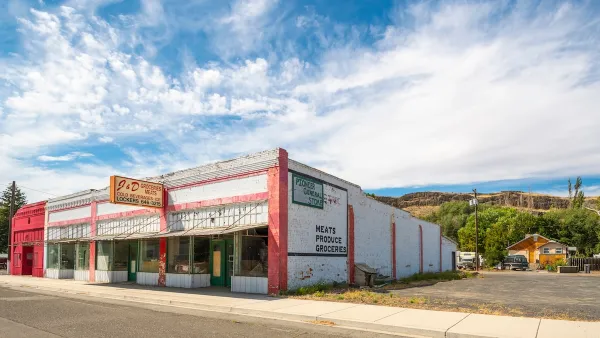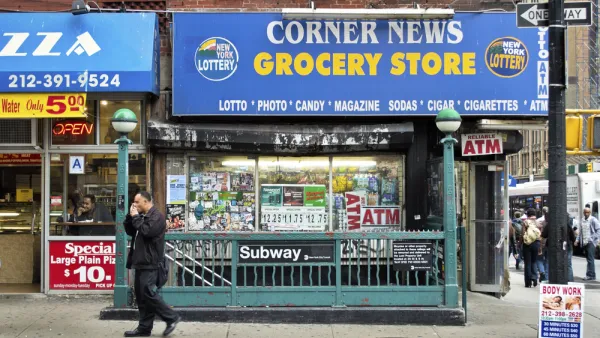An estimated 500,000 residents of the Atlanta area live without access to grocery stores. A recent article asks the obvious question: “Why can we build multimillion-dollar highway systems and multibillion-dollar stadiums but not more grocery stores?"
“Indeed, more than half a million people in the city of Atlanta and the ten counties that surround it live in neighborhoods the U.S. Department of Agriculture classifies as food deserts,” writes Rebecca Burns in a thoughtful and broad examination of the food desert problem in Atlanta and its surrounding suburbs.
Perhaps surprisingly, food deserts expand well into the suburban surroundings of Atlanta: “You don’t find these nutritional wastelands only in places like Bankhead; it’s even harder to get fresh, healthy food in the suburbs. In Cobb County, 75,000 people are food desert residents, as are 124,000 in Clayton.”
Moreover, “Getting fresh food isn’t only a problem for the poorest Atlantans. Areas most of us would hardly consider underprivileged—the middle-class suburbs of DeKalb County or the gentrified enclaves around Grant Park, for instance—are labeled 'low access' by the USDA, meaning at least a third of the people who live there have to travel a mile or more to get to a grocery store.”
FULL STORY: Stranded in Atlanta's Food Deserts

Analysis: Cybertruck Fatality Rate Far Exceeds That of Ford Pinto
The Tesla Cybertruck was recalled seven times last year.

National Parks Layoffs Will Cause Communities to Lose Billions
Thousands of essential park workers were laid off this week, just before the busy spring break season.

Retro-silient?: America’s First “Eco-burb,” The Woodlands Turns 50
A master-planned community north of Houston offers lessons on green infrastructure and resilient design, but falls short of its founder’s lofty affordability and walkability goals.

Test News Post 1
This is a summary

Analysis: Cybertruck Fatality Rate Far Exceeds That of Ford Pinto
The Tesla Cybertruck was recalled seven times last year.

Test News Headline 46
Test for the image on the front page.
Urban Design for Planners 1: Software Tools
This six-course series explores essential urban design concepts using open source software and equips planners with the tools they need to participate fully in the urban design process.
Planning for Universal Design
Learn the tools for implementing Universal Design in planning regulations.
EMC Planning Group, Inc.
Planetizen
Planetizen
Mpact (formerly Rail~Volution)
Great Falls Development Authority, Inc.
HUDs Office of Policy Development and Research
NYU Wagner Graduate School of Public Service




























